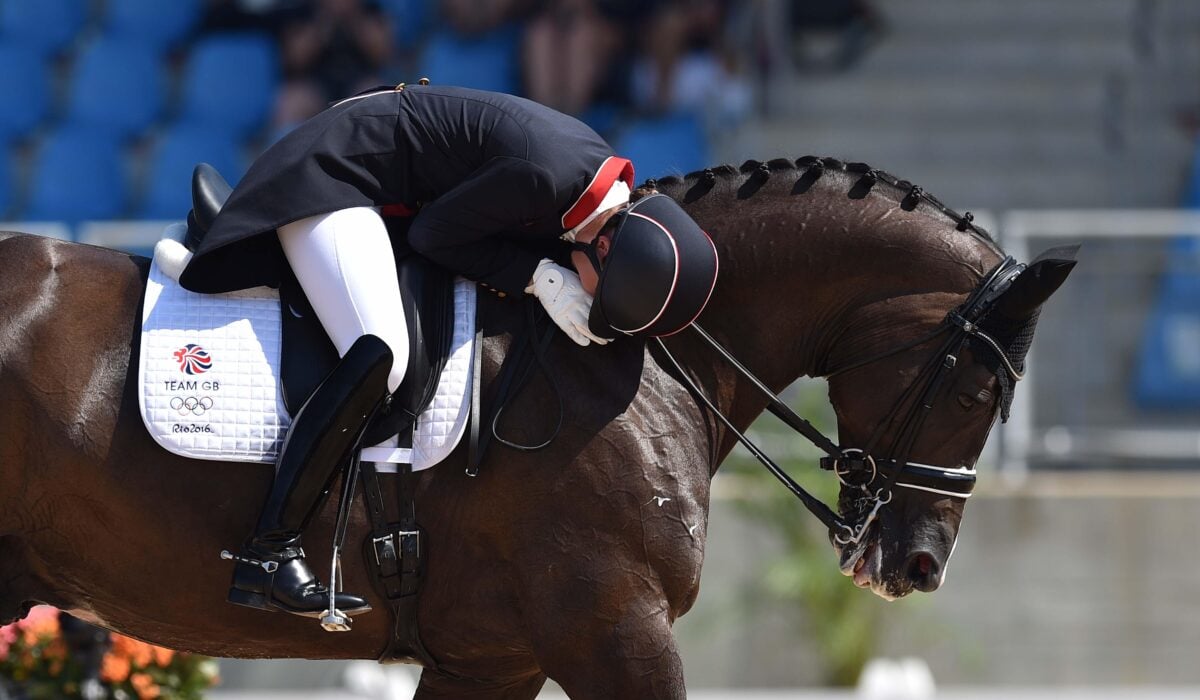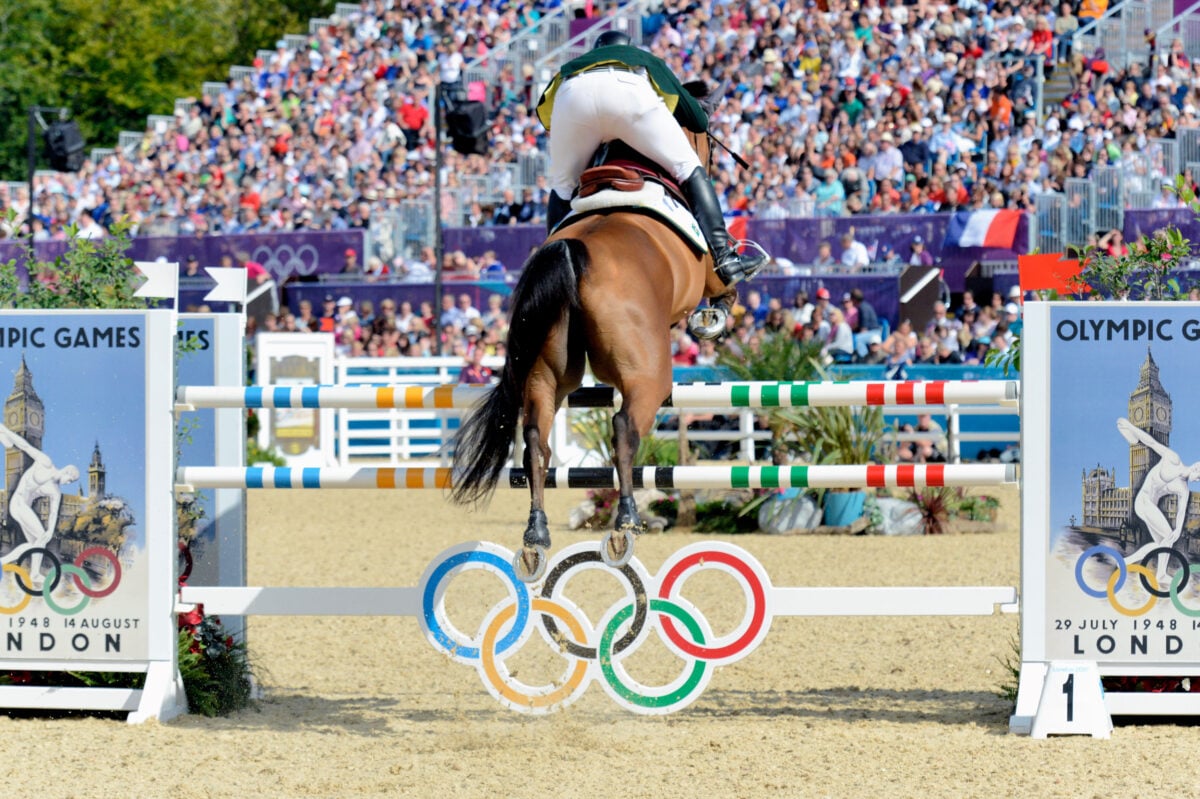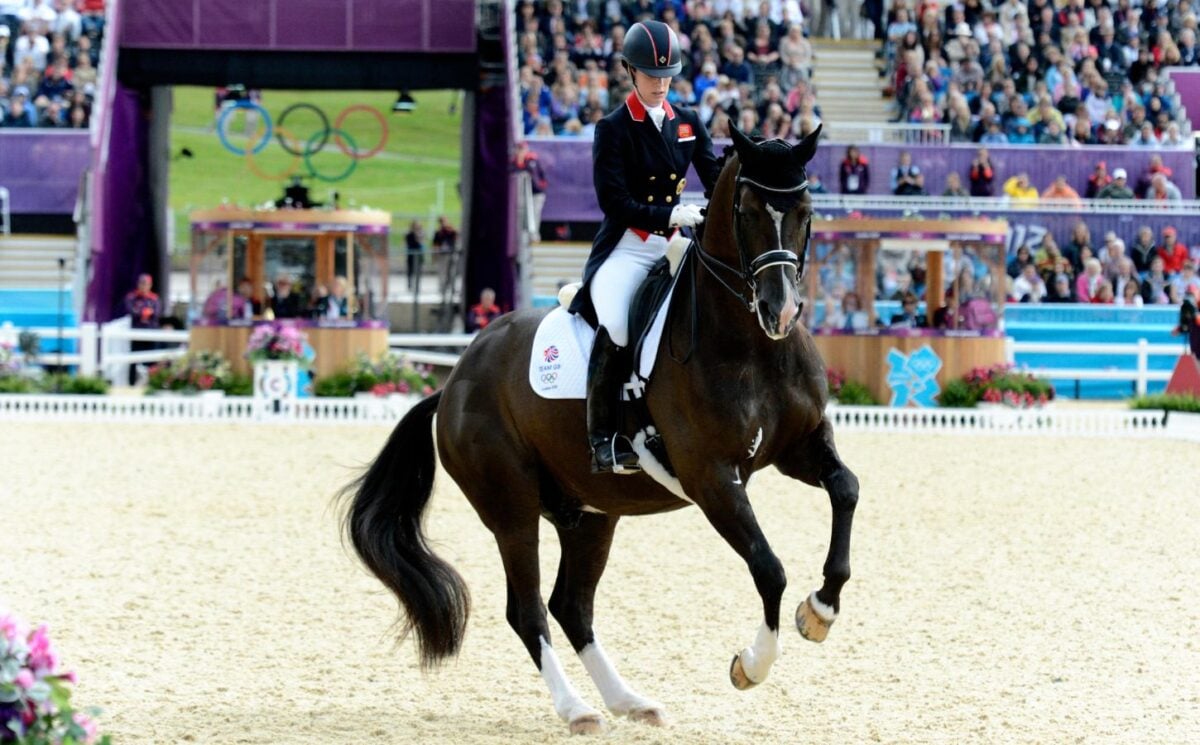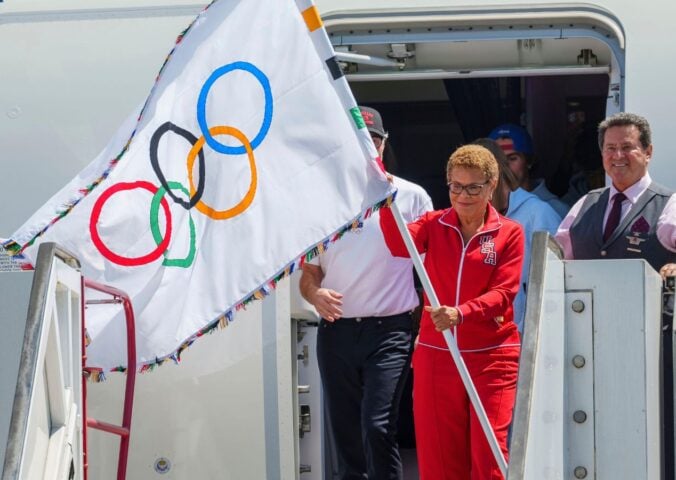When animal cruelty is cloaked in polished PR, aligned with elitism and aspirational sporting prowess, and associated with words such as “harmony,” “mutual trust,” and “respect,” it can fall under the radar. This evasion from public scrutiny can only last so long, however, and in this case, the social license has nearly expired. Enter the world of equestrian sports.
Read more: Don’t Believe The Myths: The Horse Racing Industry Is Rotten To Its Core
The 2024 Paris Olympics will see approximately 200 horses used in the equine sports of showjumping, dressage, and eventing. Individual and team riders representing their countries will seek to gain winning advantages which can be at the expense of horse welfare – a reality that causes horses to suffer pain and distress.
It will come as a shock to very few that following the disturbing scenes at the Tokyo Olympics, when a horse was punched in plain sight, the world of equestrian sports has fallen even further from grace. A very quick tap into a search engine and a whole library of tales of abuse surface, including horses being neglected, left bruised and bloody through over-use of painful riding aids, and punished with force when they are exhausted. Earlier this week, it was reported that Team GB dressage champion Charlotte Dujardin has withdrawn from the Paris Olympics, due to an “error of judgement” in a coaching session a few years ago. Video footage shows Charlotte repeatedly whipping a horse on the legs.
Far from isolated cases, these abuses are simply the visible shoots from a deep-rooted cruelty that forms the very bedrock of equestrian sports.
Read more: Why Isn’t Horse Riding Vegan? Everything You Need To Know
Tokyo Olympics 2020 (held in 2021 due to covid)
At the Tokyo Olympics, the world witnessed a coach punching a horse named Saint Boy and shouting orders to whip him harder during the modern pentathlon. Saint Boy had refused to jump for another rider earlier in the competition; it is hard to imagine how bewildering and frightening these experiences must have been for him. Following the outcry from this abuse, the horse riding segment of the modern pentathlon was axed. Whilst it is welcome news that this part of the pentathlon has now been replaced, it does beg the question: if a coach felt able to abuse an animal when the world was watching, what sort of cruelty happens behind closed doors, away from the cameras and the eyes of millions?
The Tokyo Olympics also saw a horse named Kilkenny suffer a horrific nosebleed during a showjumping final, and a horse named Jet Set “euthanized” after being injured during the cross-country. Following these disturbing scenes, international equestrian journalist Julie Taylor wrote an open letter to the International Olympics Council named: “I Can’t Watch Anymore’: The Case for Dropping Equestrian from the Olympic Games.”
Dressage

Dressage has received a huge amount of negative press for animal abuse. In November 2023, a segment on Danish TV exposed horrific cruelty at Andreas Helgstrand’s riding center: a school for dressage.
Painful riding aids (the bit and spurs) were used so aggressively that horses were seen to be bleeding from their mouths and flanks. The status of the company has been revoked.
Dressage is an intrinsically cruel discipline, in which a horse and their rider must perform a set routine of arranged movements. Terms such as “obedience,” “submissiveness,” and “domination” are rife.
One of the most controversial practices seen in dressage in recent years has been the ‘rollkur’ (hyperflexion of the neck), a now-banned practice which involves pulling a horse’s head into their chest behind the vertical with force (in the belief that it ‘improves suppleness’ – a total misconception). This “warm-up” move can obstruct a horse’s airway, injure a major ligament in their neck, cause nerve damage in their tongue, as well as cause other mental and physical harms we cannot comprehend.
Patrik Kittel, a Swedish competitor, was filmed performing the ‘rollkur’ on a horse in 2009. The video went viral due to the clear cruelty, involving the horse’s tongue turning blue due to lack of oxygen. The FEI banned the use of the rollkur in warm-up at international competitions in 2010.
However, Kittel did not receive any disciplinary action, and has remained a controversial figure. Earlier this year, Kittel was pictured riding in competitions where the horses’ tongues appeared to be blue – implying that again, the horses’ tongues were not receiving enough oxygen and they were in pain. The FEI say they are “actively looking into” this.
Even though the rollkur has been banned in international competitions, cruelty of this kind continues to happen in equestrian sports, as these sports are centered on “dominance” and “control” of an animal. Indeed, the use of the move “Low, Deep, Round” (LDR) is thought to be very similar to the rollkur in the pain it can cause the horses; yet it is still permitted. Furthermore, whilst the rollkur is officially banned, it is highly likely that some people continue this cruel practice behind closed doors.
Painful artificial aids (equipment used to maximize a horse’s “performance”) are used to the extreme in dressage. Unyielding “crank” nosebands and tight curb chains deny a horse the ability to move their own jaw, and it is well known that some riders overuse their spurs which can cause bleeding and bruising on the horse’s skin.
Show Jumping & Eventing

Show Jumping and Eventing are also incredibly cruel.
Show jumping has been entwined with drug and abuse scandals for many years. Violent whipping and overuse of spurs are common – these abuses can cause “swelling and bleeding wounds.”
“Rapping” has long been reported as happening. This is where a horse is hit in the legs to make them jump higher. Severe brits and bridles can cause excessive foaming at the mouth, drooling and painful mouth trauma.
Eventing is a grueling discipline, spanning three days of physically and mentally draining activities including dressage, cross country and show jumping. These are activities in which the horses have no choice to partake, and yet suffer greatly as a consequence.
46 Equine Welfare Recommendations
The French Government has created a list of 46 recommendations for equestrian sports at the 2024 Paris Olympics. These have been made in an attempt to mitigate the animal welfare concerns following the disturbing abuse at the Tokyo Olympic Games, and to try and be a leader for equestrian welfare in sport.
These suggestions include relaxation areas for the horses, the establishment of a “Welfare Committee” and 24/7 video monitoring. Whilst any improvements to protect horses’ safety and wellbeing are incredibly welcome; these do not deal with the root cause of the suffering, including away from the Olympic stage during training sessions. In order to safeguard horses from abuse and suffering, all equestrian sports must be dropped from the Olympics.
Foie Gras
Additionally, Animal Equality has been campaigning to remove Foie Gras patè from the menu at the Paris Olympics. Foie Gras is made by force-feeding ducks and geese, which enlarges their livers up to ten-times their natural size. The cruelty is barbaric; tubes are forced down these beautiful birds’ throats and they are kept in gruesome conditions. You can take action here.
Cruelty doesn’t belong in the Olympics
Many kind-hearted people may partake in equestrian sports, unaware of the cruelty and enjoying spending time with such magnificent animals. The abuse of horses is an inconvenient truth – and turning a blind eye – in the name of “tradition” and “status quo” is encouraged.
Budding riders are often socialized into thinking that “breaking a horse’s spirit” is justifiable to make them submit. The relationship between horse and rider is sensationalised to be one of harmony and leadership, without questioning that the relationship is only ever focused on the human’s agenda. When animals feel they have no agency, and are continually punished whatever they do, they learn to “shut down.” This can lead to “learned helplessness,” a condition linked with depression in humans. In summation, “learned helplessness is a methodology (often practiced by people who are unaware it’s what they’re doing) that punishes the horse for being a horse”.
Furthermore, forcing an animal to perform a sport which is entirely based on human wants and ideals is unacceptable, and as a result, the social license of horse racing and equestrian sports is starting to diminish. Putting animals in harm’s way, subjecting them to cruel training regimes, and only valuing them for what they can do for us, is not a “sport.” At their best, humans are compassionate and kind. These values are gold-medal worthy – the subjugation of an innocent animal is absolutely not.
To read more, visit Animal Aid’s paper on the history of cruelty in equestrian sports.
With thanks to Dene Stansall – Animal Aid’s Horse Racing Consultant.
Read more: 2024 Olympics Set To Double Its Plant-Based Food Offering






